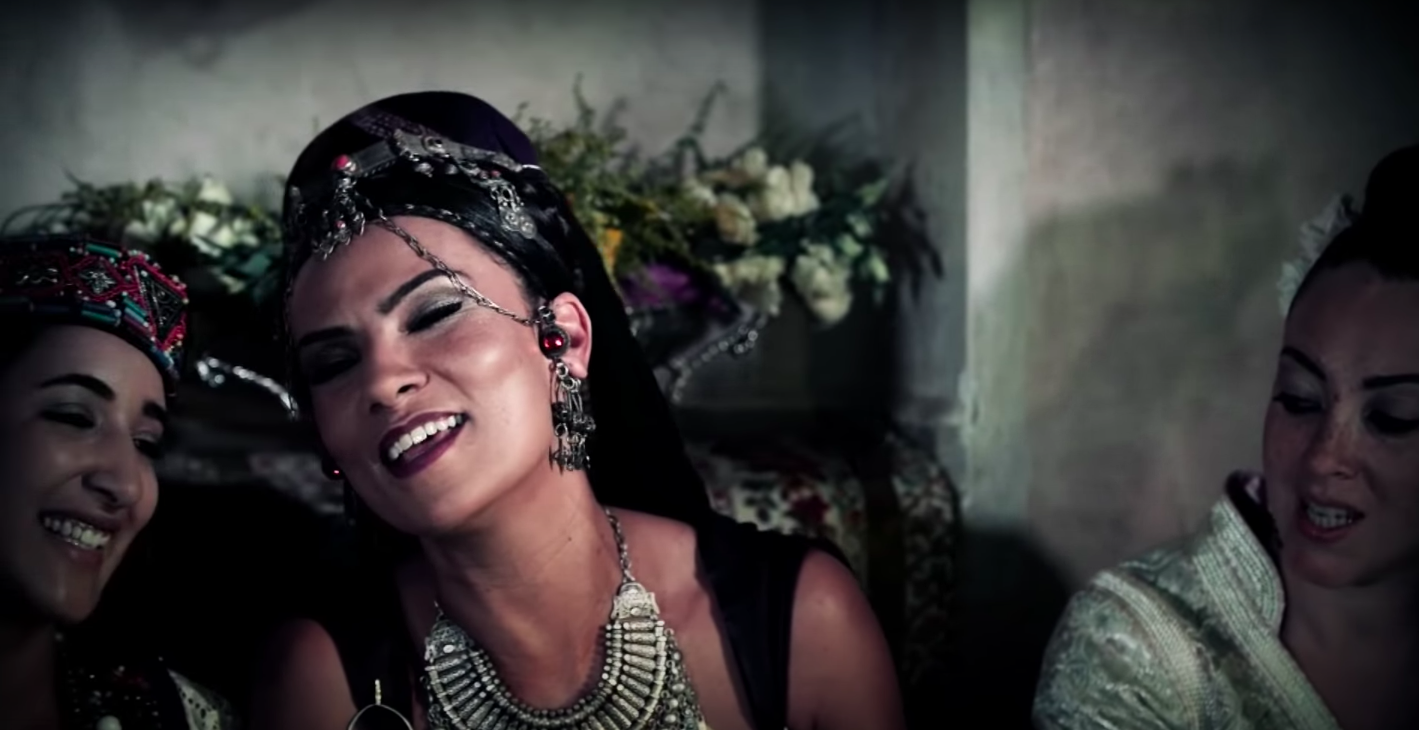Moroccan singer-songwriter Oum El Ghaït BentelSahrawy, known professionally as Oum, will perform in Paris on October 16th. The fusion singer will take the stage on the heels of the release of her third album, Daba – meaning “Now” in Moroccan Arabic.
The acclaimed singer-songwriter has taken her music around the globe, including the Gnaoua World Music Festival, WOMEX, and even as an opening act for a UNESCO event.
Oum began with Gospel music, branched out
As a child, Oum began her singing career with an American gospel choir. “We sang Jamaican songs and traditional American gospel songs like ‘Jesus loves me’,” she recalls, “I became convinced at the time that – regardless of the language you speak or the God you believe in – it cannot be bad to sing about this love.”
Now, her music incorporates a rich body of influences. But these original sounds of gospel and American jazz pervades much of it, from the vocals to the strong bass lines.
- Oum’s rendition of “Lágrimas Negras” demonstrates her vocals, which retain the intonations more characteristic of North African and Southern Spanish music, and jazz as the backdrop
- Here she fuses jazz with North African melodies and instruments and soft vocals
At the same time, her music shows an exploration of the Maghrebi region, since Oum incorporates Hassani and Gnawa music. Additionally, she always tries to reflect the diversity of Morocco, even in her dress. She uses the Berber, or Amazigh, people as an example of a distinct culture within Morocco. “When they look at me, people always see the turban first,” Oum says, “But I consciously wear jewellery of the Amazigh, the indigenous Berber people of North Africa.”
Music reflects Oum’s identity, and her identity reflects her music
Her mother is Afro-Andalusian and her father is Mauritanian. Oum herself began life in Casablanca, but grew up primarily in Marrakesh. In her 2019 TEDx talk, she speaks about her decision to leave her city and study architecture in Rabat.
“The study of architecture triggers an open mindedness towards out perception of space and of ourselves within it,” Oum says, “[it was also a turning point because] it forced me to make a choice to leave architecture and try to exist through music, which was not an easy path.”
“When music became my path, it opened my perspective and pushed me to learn a new way of being,” Oum explains, “Being a musician gifted me with travel, encounters, exchanges. Being a musician is a blessing, it is a chance to write and sing who you are – a chance to express your identity.” Oum speaks about the evolution of identity and relates it to her music, which has also been changing with different influences and styles.
Daba takes on social and political issues
Daba, Oum’s third and latest studio album, has received significant critical acclaim. For example, Les Inrocks calls Daba “an ode to the present, subtle and balanced.” Meanwhile Le Monde says, “this album … is the most thrilling, the most inspired and the most intoxicating that the singer, songwriter and composer Oum has conceived.”
The album combines acoustic and electronic music. Meanwhile, the lyrics frequently echo issues regarding the environment, migration, and the constraint of women in many cultures.
- This is an eponymous song off of her latest album, Daba. Itfeatures both North African strings and drums, as well as jazzy brass and shows Oum’s vocal variety and range
To promote this latest album, Oum will join a number of other performers in France for a series of concerts. Originally scheduled for June, the concert series will now take place in October. For her part, Oum will perform Paris on October 16th.
Listen to Oum’s discography on Spotify, or purchase tickets to her show here.



